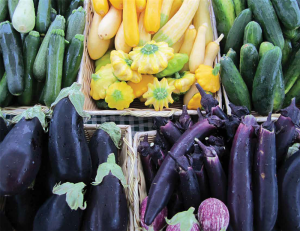Do you think of yourself as an organic farmer? Do you farm using organic methods but have passed up certification fearing a mountain of paperwork and fees your young operation can’t afford? Do you feel there’s no need to fix what isn’t broken; your customers know and appreciate how you grow, and you don’t need a certificate to prove that? Are you considering certification, but you’re unsure of where to start?
If you answered yes to any of these questions, this guide is for you. If you aren’t certified, you’re not alone.
 Although a majority of young farmers in the National Young Farmers Coalition’s network report that they grow using organic practices, very few are actually certified. This guide is meant for any vegetable farmer who embraces the philosophy and practices of organic agriculture, but isn’t yet certified. It hopes to tackle some of the challenges to certification and persuade more young farmers of the benefits it brings. It will address the history of federal organic certification, and it will walk you through the steps—from finding a certifying agency, to setting up easy record-keeping procedures.
Although a majority of young farmers in the National Young Farmers Coalition’s network report that they grow using organic practices, very few are actually certified. This guide is meant for any vegetable farmer who embraces the philosophy and practices of organic agriculture, but isn’t yet certified. It hopes to tackle some of the challenges to certification and persuade more young farmers of the benefits it brings. It will address the history of federal organic certification, and it will walk you through the steps—from finding a certifying agency, to setting up easy record-keeping procedures.
Certification is a valuable tool for your business. It quickly and easily illustrates your farm’s growing practices and philosophy to customers. Once you work through the initial application process and become familiar with the standards, you will find annual renewal to be surprisingly clear-cut. Certification will become an integral part of your farm’s reputation and your identity as a grower.
VEGETABLE FARMER’S GUIDE TO ORGANIC CERTIFICATION



